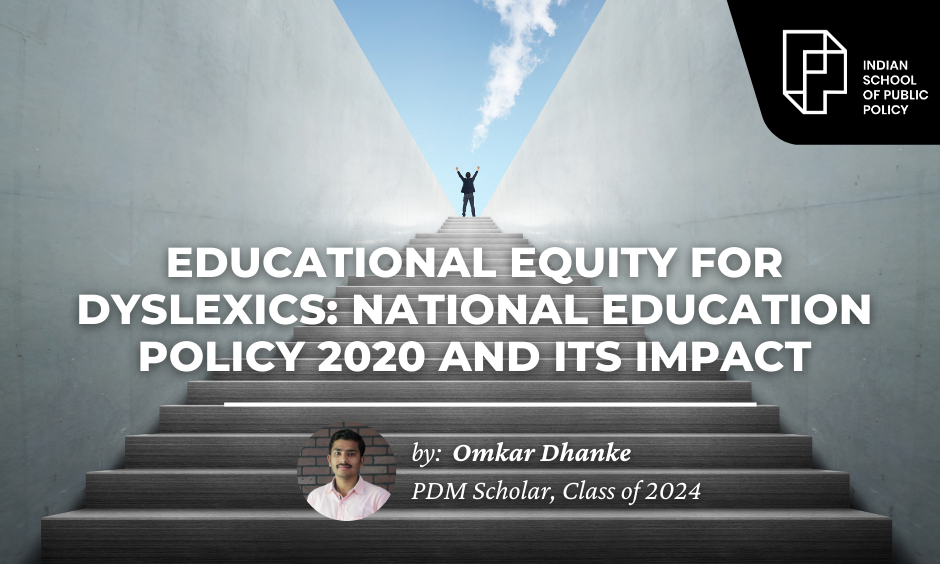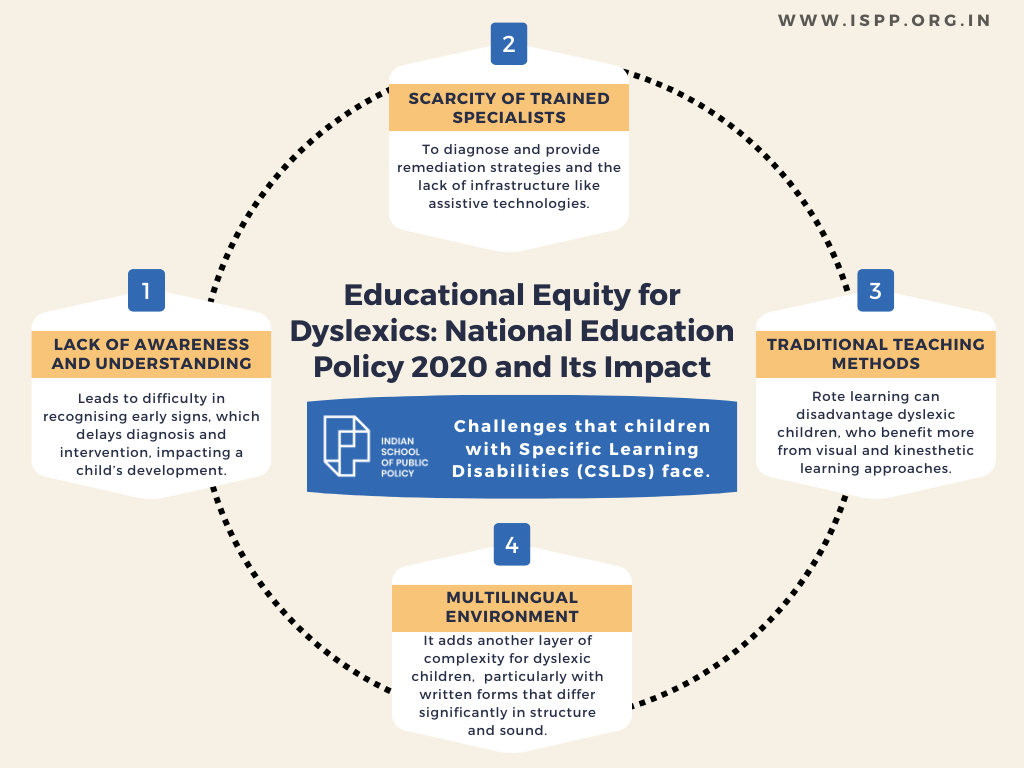
Educational Equity for Dyslexics: National Education Policy 2020 and Its Impact

Dyslexia is not a reflection of intelligence or cognitive ability. It is simply a different way of processing information, often involving strengths like creativity, visual-spatial reasoning, and problem-solving. By focusing on understanding and working with these strengths, we can unlock immense potential in dyslexic individuals. When identified and addressed early on, individuals can develop effective coping strategies and learning methods. This empowers them to overcome challenges, build confidence, and achieve their academic and personal goals. In India, only 10 million out of the total dyslexic population are identified, leading to missed opportunities for the country. India should acknowledge and leverage the untapped potential of dyslexic individuals, seizing the opportunity to transform them into not only accomplished CEOs but also exceptional individuals.
Focusing on dyslexic individuals is not only about human rights but also about each individual’s right to grow. They can be assets for improving outcomes for others, both as individual CEOs and as stories of inspiration. This is evident from the story of Richard Branson, the dyslexic founder of Virgin Group, who used his unconventional thinking and problem-solving skills to build a business empire. He embraced his learning differences and focused on areas where he thrived, like building relationships and fostering innovation. Pablo Picasso and Tom Cruise are just a few examples of how dyslexia can serve as a launchpad for individual growth and success. Each story is unique, highlighting the diverse ways in which dyslexic individuals can overcome challenges and unlock their potential in countless fields and pursuits.
In India, Specific Learning Disabilities (SLDs) were recognized for the first time by the Rights of Persons with Disability Act in 2016. The law guarantees the right to education, employment, and family for those with SLDs while protecting their right to be included in the community. This is reflected in several policies of the Government of India, including the New Education Policy 2020. However, the Indian education system lacks the required accommodation for dyslexic students, unlike the United States, where the top 100 universities support dyslexic students with curriculum and assessment adjustments. Dyslexia is so common at the Massachusetts Institute of Technology that it is locally called ‘MIT Disease’. Whereas in India, only three universities currently do this.
Yet there are many challenges that children with Specific Learning Disabilities (CSLDs) face.
1. Lack of awareness and understanding leads to difficulty in recognising early signs, which delays diagnosis and intervention, impacting a child’s development.
2. The scarcity of trained specialists qualified to diagnose and provide remediation strategies and the lack of infrastructure like assistive technologies.
3. Traditional teaching methods are often ill-suited for their learning needs, leading to frustration and academic failure. Rote learning can disadvantage dyslexic children, who benefit more from visual and kinesthetic learning approaches.
4. India’s multilingual environment adds another layer of complexity for dyslexic children, posing extra challenges, particularly with written forms that differ significantly in structure and sound.
Infographic:

To address these challenges, the New Education Policy (NEP) 2020 has taken significant steps towards ensuring inclusive education and improving the learning experience for CSLD. It focuses on the early identification of disabilities, ideally in the preschool years, through regular screenings and assessments. To create an inclusive learning environment, it emphasises that CSLDs learn alongside their peers without discrimination. The curriculum will be made flexible to accommodate the learning pace and styles of CSLD. This includes offering a wider range of subjects and allowing diverse learning materials and technologies. It encourages the use of assistive technology such as screen readers, augmentative communication devices, and specialized software to aid learning. Teachers will be trained to support diverse learners effectively. Apart from that there is provision of special educators to provide support and guidance to CSLDs.
By implementing these solutions collaboratively, we can create a more supportive and inclusive environment for dyslexic children in India, enabling them to thrive and reach their full potential. Remember, progress requires a multi-pronged approach, involving advocacy, resource allocation, education reform, and community engagement. By working together, we can help bridge the gap and ensure that every child with dyslexia has the opportunity to succeed.

Omkar Dhanke
PDM Scholar, Class of 2024
Omkar Dhanke, graduated in Bachelors in Technology (Food Technology) in year 2020, from MIT, Pune. Always socially conscious, got himself enrolled in National Service Scheme (NSS) to work for people. His research and analysis skill are very well evident from the fact that he has published two research papers during graduation. Poster Presentation, Event Management, Public Speaking reflect his managerial and presentation skills. Post the graduation, while preparing for civil services, he started analyzing things around himself from the perspective of governance, social justice, ethics in governance, which made know and understand the critical role of public policy and policy makers in the governance of country. This made him realize the need to pursue career in Policy Design and Management.

